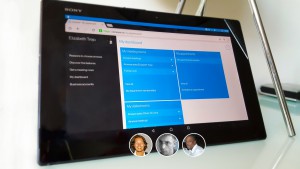Airwave – Communicate in confidence
Airwave employs Azure and a cornucopia of open source technologies to deliver free and simple video conferencing service. 
Dutch startup Airwave is improving business and social interactions with their new, free web-based video conferencing platform. The best part of Airwave? No software or plugin installation is required- all you need is a modern browser. Meetings and conferences are arranged via a link, and invitations are sent in email allowing quick access to peer-to-peer calls. While Airwave’s ease of access makes it an attractive platform for any user, the service was developed, mainly, to target businesses and professionals, says Founder Olivier de Jong. “We wanted to focus on improving the platform environment, the conference environment, and give users have the ability to configure how they organize their video meetings. Users can organize one-on-one or group meetings. They can configure their meetings to be open to the public, private, or by appointment. If users organize one-on-one meetings, their meeting is automatically equipped with a virtual waiting room.”
In addition to its easy to use framework, Airwave also prides itself on security. “Video conferencing is really all about credibility, safety, and privacy” continues de Jong. In order to maximize user confidence, Airwave has ensured that calls are never recorded and written messages never saved.
A Microsoft BizSpark member, Airwave depends on the Azure platform to keep their product running smoothly. However, the company did not initially intend on running Airwave with Azure. The company initially developed their product with a competing platform but ran into issues when they attempted to scale. “We started off with a different service, but quickly encountered problems with downtime, deployment, scalability, etc. Then, on a recommendation, we switched to Azure which provided us with the capability to run our business on a global scale. Now we can easily use and deploy our product,” says de Jong.
In addition to its hosting and deployment capabilities, Airwave utilizes Azure Virtual Machines. Although only currently bootstrapped to three VM’s, the company has been very pleased with performance and plans to expand its usage in the future. “Configuration for the Virtual Machines was so easy. It enabled us to get things up in running in under an hour.”
Airwave’s decision to stick with Azure was cemented by its compatibility with popular open source technologies many of which they were already using. The company uses Nginx for high performance content delivery and Nodejs for signaling their server environment. Airwave leverages MySQL for user and system data storage and PHP for business logic. HaProxy and Coturn are also used, sparingly. Despite the heavy load, Azure has kept things running smoothly, de Jong continues. “We are nearly a completely open source house, so we needed a platform that could handle the burden. It has actually been a little surprising how great everything has worked. Azure has made life much easier for our developers."
Despite launching only several months ago, Airwave is already making important business partnerships concludes de Jong. ‘We feel great about our membership in the BizSpark program. Their help and support has been invaluable.”
+++++++++++++++++++++++++
Microsoft is helping these startups succeed through its BizSpark program. To join or see other startup stories, visit us at our website here. To listen to our startups, check out these podcasts on devradio here.
About BizSpark: Microsoft BizSpark is a global program that helps startups succeed by giving free access to Microsoft Azure cloud services, software and support. BizSpark members receive up to $750 per month of free Microsoft Azure cloud services for 3 years: that’s $150 per month each for up to 5 developers. Azure works with Linux and open-source technologies such as Linux, Ruby, Python, Java and PHP. BizSpark is available to startups that are privately held, less than 5-years-old and earn less than $1M in annual revenue.

